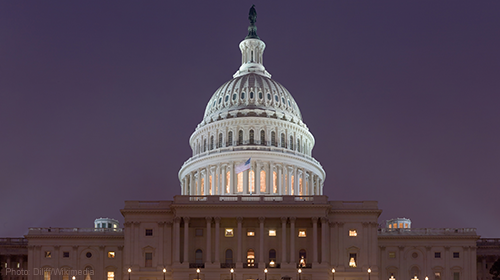
So this “lame duck” Congress may not be so lame after all – at least when it comes to increasing government transparency.
On Thursday, the Senate Judiciary Committee is set to consider a bipartisan measure that, while modest, would be one of the most significant improvements to the Freedom of Information Act in decades. Sponsored by Vermont Democrat Patrick Leahy and Texas Republican John Cornyn, we’re hopeful the committee will send the bill to the full Senate where it has a legitimate chance at passage, even in the politically fraught aftermath of this month's election.
The legislation would take several small but important steps to improve FOIA.
First and foremost, it would enshrine in law President Obama's pledge, made on his first day in office, to change the default response when the government receives a FOIA request to disclosure. While we've been critical of the Obama administration's approach to transparency on things like NSA surveillance, we strongly applauded this "presumption of openness," which stood in marked contrast to the approach of the Bush administration.
The bill would also encourage the release of documents in electronic format and would, for instance, require agencies to release documents electronically if they've been publicly released and requested more than three times. Furthermore, it would require additional reporting by agencies on requests denied and documents released.
Finally, it would clarify in the law that agencies cannot deny requests simply because the information requested would be embarrassing or merely technically fits one of the exemptions to FOIA (that is, the information could be covered by an exemption but release wouldn't result in harm). Additionally and importantly, it would limit FOIA's Exemption Five, which covers a broad range of documents covered by things like the attorney-client privilege and is often overused by agencies. Under the bill, only documents produced in the past 25 years would be eligible for withholding.
The ACLU has long argued that the First Amendment rights of Americans require public access to government information, especially in areas like national security, where the government has an abiding incentive to withhold information about fraud, waste, embarrassment, or illegality. FOIA is the most important mechanism in service of that First Amendment value.
We applaud Senators Leahy and Cornyn for their important legislation to make it a better law.
Learn more about government oversight and other civil liberties issues: Sign up for breaking news alerts, follow us on Twitter, and like us on Facebook.

